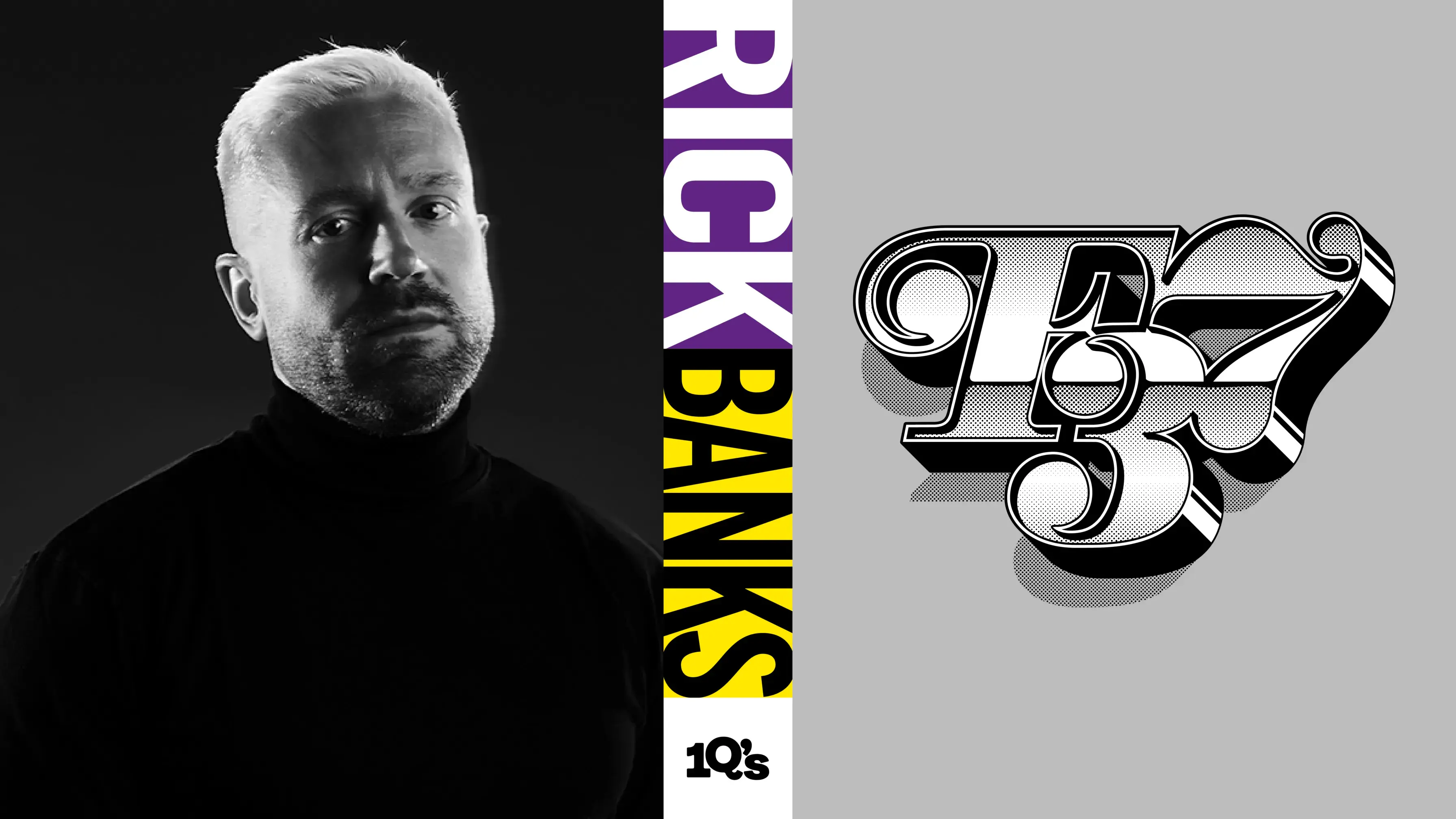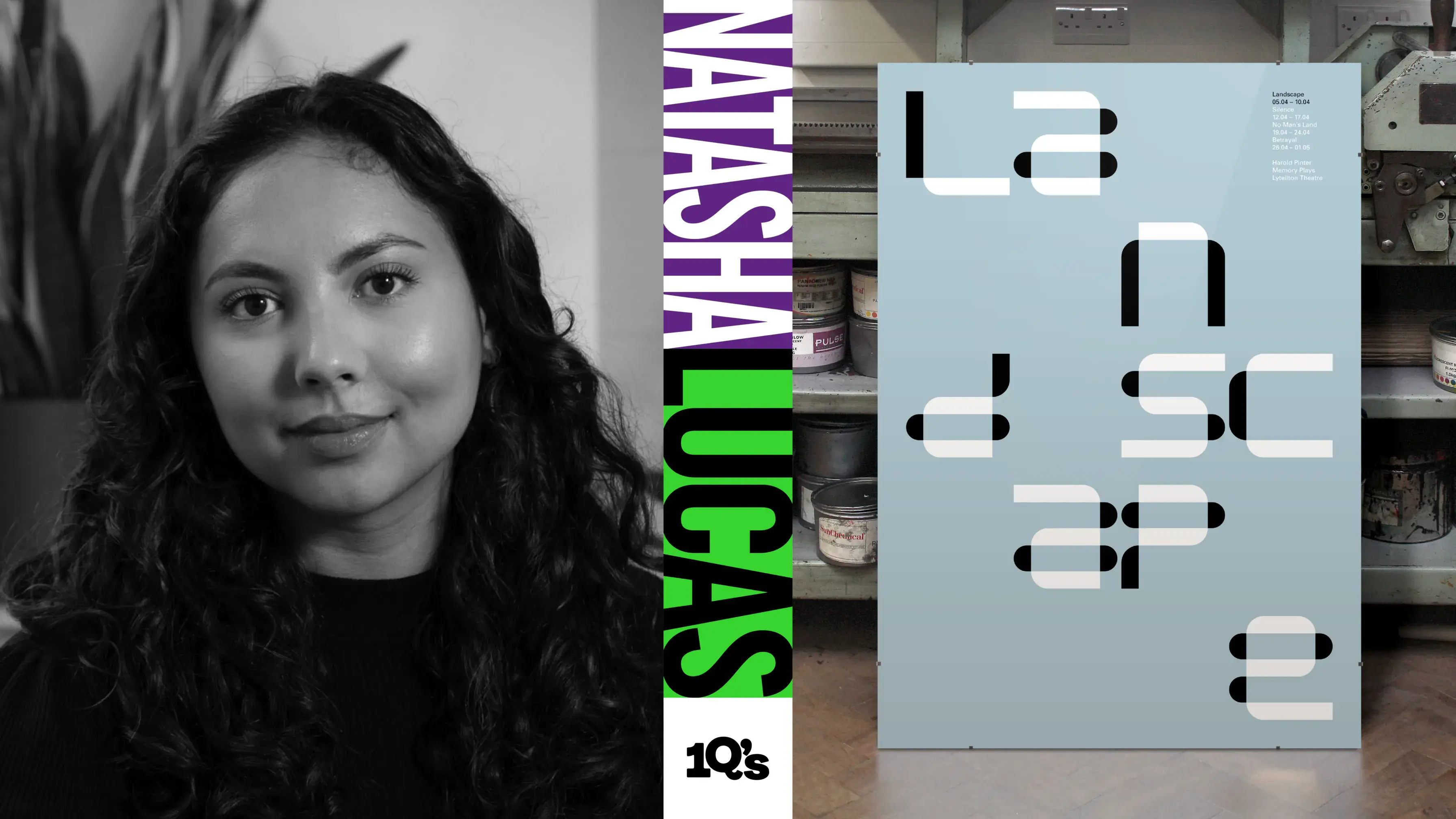

10?’s with lawyer, John Ireland
We’ve never interviewed a lawyer before, but then again, John is no ordinary lawyer.
We spoke with John about his fascinating career from investigating leaky roofs, to making it as a big dog hot shot lawyer, working in many sectors from music to football and the creative industries.
So John, tell us how it all started?
My first job after graduating from Leeds University was working in Fleet Steet for a law firm specialising in construction litigation.
Masons was a great place for me to get some solid experience under my belt, but I really couldn’t get excited about going through truckloads of documents to find out why the roof of the Barbican was leaking.
Then my dream job showed up.
I have always had a great love of music and one day saw an advert to head up a new litigation department for a music firm in the West End. I got the job and spent six wonderful years there looking after a number of high profile clients.
Stand out moments include successfully representing Joe Strummer in a copyright infringement case (Joe sung a couple of Clash songs in my office a cappella) and advising Roger Waters when he left Pink Floyd. I had the privilege of watching his first solo gig backstage at Madison Square Gardens in New York before driving off in his limo to the infamous Nell’s nightclub for the after show party.
By the end of my six years, the firm had branched out into film and TV. One time, in 1987, a theatrical agent (whom I continue to represent to this day) brought along a young 17 year old actor called Catherine Zeta Jones for advice in relation to her stage contract—she was about to get her big break as an understudy, taking over the lead role in the West End production of “42nd Street”.



You’re probably most famous for your time at Tottenham Hotspur. Can you tell us what that was like and what was your biggest memory of your time with ‘The Sugar Daddy’?
Well it was certainly a high profile job!
Alan Sugar had just taken over Spurs, along with Terry Venables who was then the Team Manager. The Premier League had only been formed the year before and Alan wanted someone to oversee all the Club’s commercial agreements.
Within three months of my appointment however, there was an almighty bust up between Alan and Terry. High Court litigation quickly ensued, and I found myself caught in the middle of a very acrimonious public dispute with Alan eventually winning full control of the Club.
During my time at Spurs, I learnt a lot about the needs and aims of running a profitable business from both Alan and my CEO Claude Littner. My role was focused on getting deals done quickly and viewing any contractual issues from a practical and commercial aspect.
My job was incredibly varied, managing all the Club’s many contracts. These encompassed Sponsorship, Merchandise, Publishing, Licensing, Trade Marks, TV, DVD & Radio rights. There was also plenty of action on the litigation front as well as Alan was always ready to “fight his [Spurs] corner”!
There were of course many magical moments besides the legal stuff.
In 1995, I was lucky enough to travel with the players on a three match tour of the Far East and was invited to take part in a training exercise one morning. I ended up with Jurgen Klinsmann as my jogging partner and then playing a knockabout game with the likes of him, Teddy Sheringham, Nick Barnby and Darren Anderton.

You set up your own practice after Spurs. What took you from football to working with other creative clients?
After eight years, myself and the Finance Director were unceremoniously sacked by Daniel Levy following his take-over of the Club from Alan Sugar in 2001—an event that made the back page of that day’s edition of the London Evening Standard!
I took the opportunity to set up my own law firm which allowed me to work directly with my clients, rather than in a corporate structure. My first major client was a football agency, and my client base grew from there to encompass a wide range of talented individuals and creative businesses.
What I’ve loved about having my own firm is the sheer variety of people that ask for my help in a host of different and interesting areas. Most of my business is through referrals and recommendations, and my focus is always to achieve simple and speedy solutions.
We met around this time, I remember you taking me to a Young Fathers gig at Hyde Park. What is it like working with a band at the bleeding edge of music, and what kind of challenges do you face looking after them?
Young Fathers ironically came to me as a result of a recommendation by a successful record producer whom I had “taken to the cleaners” in one of the earliest “music sampling” cases. He was mates with the manager of Young Fathers and my first job for them was to get them out of a recording contract that they had signed when starting out.
At the time, they were pretty unknown and the first gig I saw them perform was at Madam Jo-Jo’s in Soho along with about six other people. Since then they have started to achieve the success that they truly deserve, winning the Mercury Prize and being nominated last year for three Brit Awards.
With three band members, the biggest challenge is getting them all on the same page and understanding the importance of their legal contracts. As artists, it’s not their focus but my role is to ensure they have all the necessary agreements in place to protect them as they continue to develop their careers.

You've been Nomad’s lawyer since day one. We’ve been through quite a few scrapes together, all ending well thankfully! What advice do you have to anyone reading this who runs an agency or studio?
Yes it’s been great to be involved and to see you & Terry create such a successful company—you’re one of my favourite clients!
Running an agency or studio requires creative talent of course, but you do need to be “business savvy”. My advice would be to ensure you have robust contracts in place from the start. You only need a few templates to deal with the basics of running a business, such as the terms upon which you will provide your services or goods, staff and freelancer contracts, supplier contracts and perhaps a shareholder/founders agreement.
These will minimise your chances of getting caught up in time consuming and potentially expensive disputes. And don’t forget legal contracts are really just business agreements so treat them as such. As the consummate entrepreneur and very successful artist Andy Warhol once said "Being good in business is the most fascinating kind of art”.
We need to talk about your strapline. Care to explain it to us?
Ah, you mean “Counsel for Unique & Natural Talent”!
It came to me late one evening in the iconic 192 restaurant in Notting Hill. I was having dinner with some friends and we were talking about business names for some reason, and I thought the expression perfectly summed up the kind of lawyer I am.
You’ve been name checked in songs and even made the liner notes of albums but what is your proudest moment as a practising lawyer?
In terms of a name check, it’s got to be having my name sandwiched right between Elton John & Madonna in the “Thanks To” end credits for a film called Rize by the photographer David LaChapelle.
But in terms of a legal matter, it was negotiating a fabulous compensation deal for a client without any reference to the law. I had been approached by a young woman who had been badly treated by a senior record company executive. This was well before the “#MeToo” movement but on any view, his behaviour was shocking. I arranged a meeting with the record company’s lawyer and demanded twice as much money as my client could get at a trial. On enquiring why I was asking for such a crazy amount of money, I told him I knew I could get that sum by selling the story to the Sun newspaper—my client got paid the amount demanded within three days.
You really care about nurturing talent, and protecting them, I can attest to that! What’s next, and what do you want to do more of?
More of the same please, I’m always looking to help creative talent.
My clients benefit from the lessons I learnt at Spurs—no waffle, plain English documents and concise commercial advice. You can always contact me directly and I’m very prompt to respond (habits learnt from having Alan Sugar as your boss!)
It’s my job to help my clients pursue their goals with the right structures and protections in place. Social media channels and online platforms offer openings to earn a good living, and I now find myself acting for several “influencers” such as Chloe Veitch who originally found fame in reality-dating shows but now has 2M followers on Instagram and is working in LA.


Your poker nights are legendary, but you refuse to play Texas Hold ‘em. Explain your thinking here because I’m just not getting it!
I’ve been hosting poker nights for well over 20 years now. First a regular bunch of guys, then more recently a “pick and mix” approach inviting various combinations of friends and clients along. It’s much more a social evening than a gambling one, especially as the maximum stake for the night is £20 per person.
Now, as you well know Stu, the entire “raison d'être” of Texas Hold ‘Em is for one person to win all the money leaving the rest to twiddle their thumbs—which is very dull. My idea of a perfect evening is where you have a laugh, meet some interesting people, maybe do some networking and everyone goes home with the shirt on their back and a smile on their face!
Finally, a little birdy told me that you’re writing a film script—how come and what’s it about?
I am indeed.
It’s about a young woman from London who inherits a beach bar in Spain (a place I love and know well) but the local Mayor is trying to use an old obscure law to demolish it so his son can take over.
There are subplots naturally and a smattering of the surreal (a nod to one of my favourite directors, Luis Buñuel) plus plenty of action involving the local nuns!
I must say the project has been enormous fun, freeing me from the legal confines of logic and allowing me to embrace the freedom of my imagination. And who knows, once it’s finally finished, someone might make a film of it.
John Ireland is a London-based legal consultant specialising in the music, media, arts, entertainment, sport and creative industries. Formerly the Litigation Partner in a music law firm, then Head of Legal at Tottenham Hotspur FC under Alan Sugar, he has since built a thriving independent practice representing clients ranging from award-winning bands and rising influencers to established creative agencies and production companies. Known for his no nonsense approach and sharp commercial acumen, he has been Nomad’s lawyer from day one.




